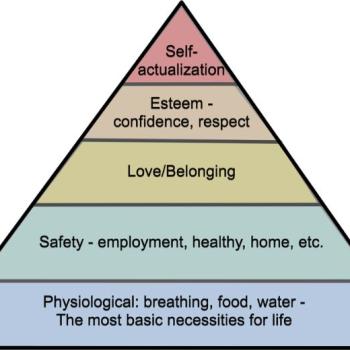
Why You Can Improve Your Mood with Food
God is a Master Designer, and you don’t have to look any further than your own body to see this. Your brain, for example, is a complex organ that requires a constant supply of nutrients to function correctly. When you eat, your body breaks down food into its component parts, including amino acids, vitamins, and minerals. These nutrients pass through the blood-brain barrier to produce neurotransmitters such as serotonin, dopamine, and norepinephrine. Serotonin is responsible for regulating mood, appetite, and sleep. Low levels of serotonin have been linked to depression and anxiety. Foods that are high in tryptophan, an amino acid that is a precursor to serotonin, can boost serotonin levels naturally. Good mood foods that are high in tryptophan include turkey, salmon, tofu, nuts, and seeds. Dopamine is another neurotransmitter involved in our mood and motivation. Low levels of dopamine have been linked to low mood and lack of motivation. Foods that are high in tyrosine, an amino acid that is a precursor to dopamine, can help to boost dopamine levels naturally. Good mood foods that are high in tyrosine include chicken, beef, eggs, and dairy products.Foods for Improving Mood – What to Eat and What to Avoid
Now that we understand some of the science behind how to improve your mood with food, let’s explore some specific mood-boosting foods.Good Mood Foods
- Fatty fish: Salmon, mackerel, and tuna are all high in omega-3 fatty acids, which may reduce symptoms of depression and anxiety.
- Leafy greens: Leafy greens, such as spinach and kale, are high in folate,* which has been linked to a lower risk of depression.
- Berries: Berries, such as blueberries and strawberries, are high in antioxidants, which have been shown to reduce inflammation and improve mood.
- Dark chocolate: Dark chocolate is high in flavonoids, which are linked to improved mood and cognitive function.
- Fermented foods: Fermented foods, such as yogurt and kimchi, are high in probiotics, which have been linked to improved gut health and mood.
Foods to Avoid
- Processed foods: Processed foods, such as fast food and snack foods, are often high in sugar and unhealthy fats, which can negatively impact your mood.
- Refined carbs: Refined carbs, such as white bread and pasta, can cause a spike in blood sugar levels, which can lead to mood swings and fatigue.
- Alcohol: While alcohol may initially have a mood-boosting effect, it can also lead to depression and anxiety in the long run.
Myths and Misconceptions About Food and Mood
There are several myths and misconceptions about the connection between food and mood. Here are a few to be aware of. Myth: Sugar can improve mood. Fact: While sugar may provide a temporary mood boost, it can also lead to a crash that will negatively impact your mood in the long run. Myth: Caffeine can improve mood. Fact: While caffeine may provide a short-term boost in energy and mood, it can also lead to anxiety and sleep disturbances in some people. Myth: Eating a lot of fruit can lead to weight gain. Fact: While fruit does contain sugar, it is also high in fiber and other nutrients that can support weight loss and overall health.The Role of Exercise in Mental Health and Mood Improvement
In addition to eating good mood foods, participating in exercise can also play a significant role in improving your mental health and mood. Exercise releases endorphins, which are natural mood boosters. It can also reduce inflammation, improve sleep, and increase self-esteem.Physical and Mental Exercises to Improve Your Mood
When it comes to mental health exercises, there are a variety of options to choose from. Some examples include:- Mindfulness meditation: Mindfulness meditation involves focusing on the present moment and letting go of distracting thoughts. It has been shown to reduce symptoms of anxiety and depression.
- Yoga: Yoga combines physical movement with mindfulness, making it an excellent option for improving both physical and mental health.
- Gratitude journaling: Writing down things you are grateful for each day can help shift your focus to the positive aspects of your life and improve your mood. Journaling can be done either in the morning, to start your day on a positive note, or in the evening, to calm your mind and help you get ready for bed. List a few things or people you are grateful for in your life each day. It could be as simple as a warm cup of coffee, a loving pet, or a supportive friend. This will help you cultivate a positive mindset.
- Cardiovascular exercise: Cardiovascular exercise, such as running or cycling, can release endorphins and improve mood. You don’t need to hit the gym for hours or run a marathon. Even a short walk, a quick workout, or a simple stretching routine (like the yoga mentioned above) can help improve your mood and increase your energy levels.
Tips for Incorporating Good Mood Foods and Mental Health Exercises into Your Daily Routine
Incorporating good mood foods and mental health exercises into your daily routine doesn’t have to be complicated. Here are a few tips to get you started.- Plan your meals: Take some time each week to plan out your meals and snacks. This will help you to ensure that you are eating a balanced diet that includes good mood foods.
- Take time to exercise or meet with friends: Exercising with a friend can help to keep you both motivated and accountable. Don’t have any friends interested in exercising with you? At least make an effort to meet with one or more of them once a week for lunch or coffee. Or maybe go out for brunch or a movie with a group of friends on the weekends. You need this time with other people to connect and have fun.
- Try to pay attention to what you watch and listen to. Go for what always puts you in a good mood. Focus on movies that make you laugh, television shows that bring you a sense of comfort and nostalgia, and any music that makes you want to dance.
- Make it a habit: Incorporating good mood foods and mental health exercises into your daily routine will be most effective if you make them a habit. Try to do them at the same time each day to make them a part of your routine.
- Don’t be too hard on yourself. Remember that improving your mental health is a journey, and it’s okay to have setbacks along the way. Be kind to yourself and celebrate your successes, no matter how small they may be.
Additional Lifestyle Changes to Improve Your Mood
In addition to eating good mood foods and engaging in mental health exercises, there are several other lifestyle changes that can help to improve your mood. These include:- Getting enough sleep. Lack of sleep can have a significant impact on your mood and mental health. Aim for 7-8 hours of sleep each night.
- Spending time in nature. Being outdoors has a magical way of making everyone much happier. Whether it is due to the fresh air, the extra vitamin D, or the sounds and smells, being in the midst of God’s creation – the animals, trees, and flowers – is uplifting.
- Practicing self-care. Self-care activities, such as taking a bubble bath or reading a book, can help to reduce stress and improve mood. These are vital activities to include every day to maintain a positive mindset and enhance your overall well-being.
- Seeking support. If you are struggling with your mental health, don’t be afraid to seek support from a mental health professional or support group.
The Importance of Taking Care of Your Mental Health Through Food and Exercise
The connection between food and mood is a complex one. However, by incorporating good mood foods and mental health exercises into your daily routine, you can improve your overall mental health and well-being. Remember to be kind to yourself and take things one step at a time. Your mental health is worth the effort!How to Seek Professional Help for Mood Improvement
If you are struggling with your mental health, it’s essential to seek professional help. Talk to your healthcare provider about your symptoms. They will be able to help you determine the best course of action. This may include therapy, medication, or a combination of both. If you or someone you know is suffering from mental health issues, don’t hesitate to seek professional help. Contact a mental health professional or support group today. You can visit Focus on the Family’s web site for a free session with a licensed Christian counselor, or to get a referral to someone in your area.*Some of these links are affiliate links. If you purchase products from these sites, I may make a small commission from referring you.













